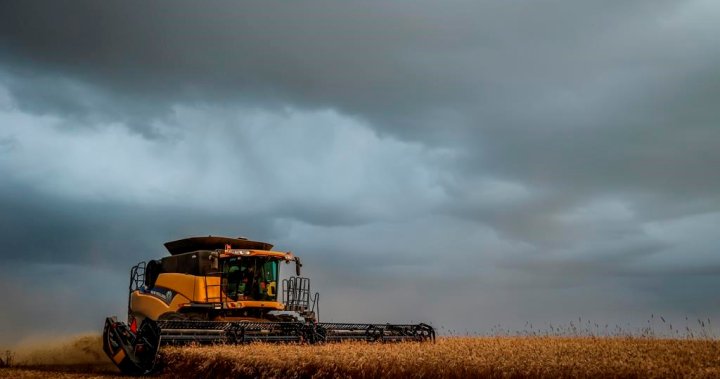The demanding nature of farming, characterized by long hours, arduous labor, and unpredictable market conditions, often takes a toll on the mental well-being of those involved in the agricultural sector. This isolation and the inherent volatility of the industry can contribute to feelings of stress, anxiety, and depression. Gerry Friesen, Chief Administrative Officer of the Manitoba Farmer Wellness Program (MFWP), shares his personal experience of battling anxiety and depression as a hog producer, highlighting the significant impact that market fluctuations and the solitary nature of his work had on his mental health. Friesen emphasizes the societal stigma surrounding mental health issues, particularly within farming communities, where seeking help was often perceived as a sign of weakness or lack of faith. He recounts how internalizing these beliefs led him to attempt to “work his way out” of his mental health struggles, further exacerbating his condition.
A pivotal moment in Friesen’s journey towards recovery came in the form of a simple conversation with a neighbor. This seemingly ordinary interaction, where he finally felt comfortable opening up and sharing his burdens, proved to be a turning point. The neighbor’s empathetic listening, devoid of judgment or unsolicited advice, provided Friesen with the validation and support he desperately needed. This experience not only normalized his struggles but also empowered him to seek professional help, setting him on the path to recovery. Inspired by his own transformative experience, Friesen became instrumental in establishing the MFWP, an organization dedicated to providing free counseling services to Manitoba farmers, their families, and employees.
The MFWP, initially a non-profit organization, has recently attained charitable status, a significant development that unlocks new avenues for funding. This transition allows the program to access financial support from foundations specifically designated for charitable organizations, expanding its reach and impact. Furthermore, charitable status provides an incentive for individual donations, as donors now qualify for tax receipts, further bolstering the program’s financial resources. This enhanced funding capacity is crucial for the MFWP’s growth and sustainability, enabling the organization to meet the increasing demand for its services.
The MFWP has experienced a dramatic rise in the number of individuals seeking support, with usage doubling in the second year and increasing by 150% in the third year compared to the previous year. While this surge in demand highlights the program’s effectiveness and the growing awareness of mental health issues within the agricultural community, it also underscores the prevalence of these challenges among farmers. Friesen acknowledges this duality, recognizing the positive aspect of increased utilization while simultaneously acknowledging the underlying issue of widespread mental health struggles within the farming population. The MFWP cites data revealing that a significant percentage of farmers meet the criteria for anxiety and depression, with a substantial portion hesitant to seek help due to prevailing stigma.
Roberta Galbraith, vice-chair of the MFWP board and a Westman producer, emphasizes the program’s commitment to breaking down these barriers and providing accessible, confidential support. She highlights the profound impact of simply talking about challenges, describing the sense of relief and weight lifted from individuals who engage with the program. Galbraith notes a gradual shift in the culture surrounding mental health, with increased openness and dialogue about anxiety and depression, attributing this change in part to the MFWP’s efforts to raise awareness. The program’s user-friendly online platform enables farmers to quickly and confidentially schedule appointments, typically receiving a response from their chosen counselor within two days, addressing the critical need for timely access to mental health services.
Gerry Friesen, reflecting on his own experience, encourages those struggling with mental health challenges to reach out for help, emphasizing three key messages: they are not alone, seeking help is a sign of strength, and there is hope for recovery and relief. He extends a challenge to the broader farming community, urging individuals to offer a listening ear, free of judgment and imbued with confidentiality, to those in need. Friesen’s personal journey and his dedication to the MFWP serve as a powerful testament to the importance of addressing mental health within the agricultural sector, promoting a culture of support, and providing access to vital resources for farmers and their families. He underscores the importance of community support, urging everyone to be a source of empathy and understanding for those facing mental health challenges.

